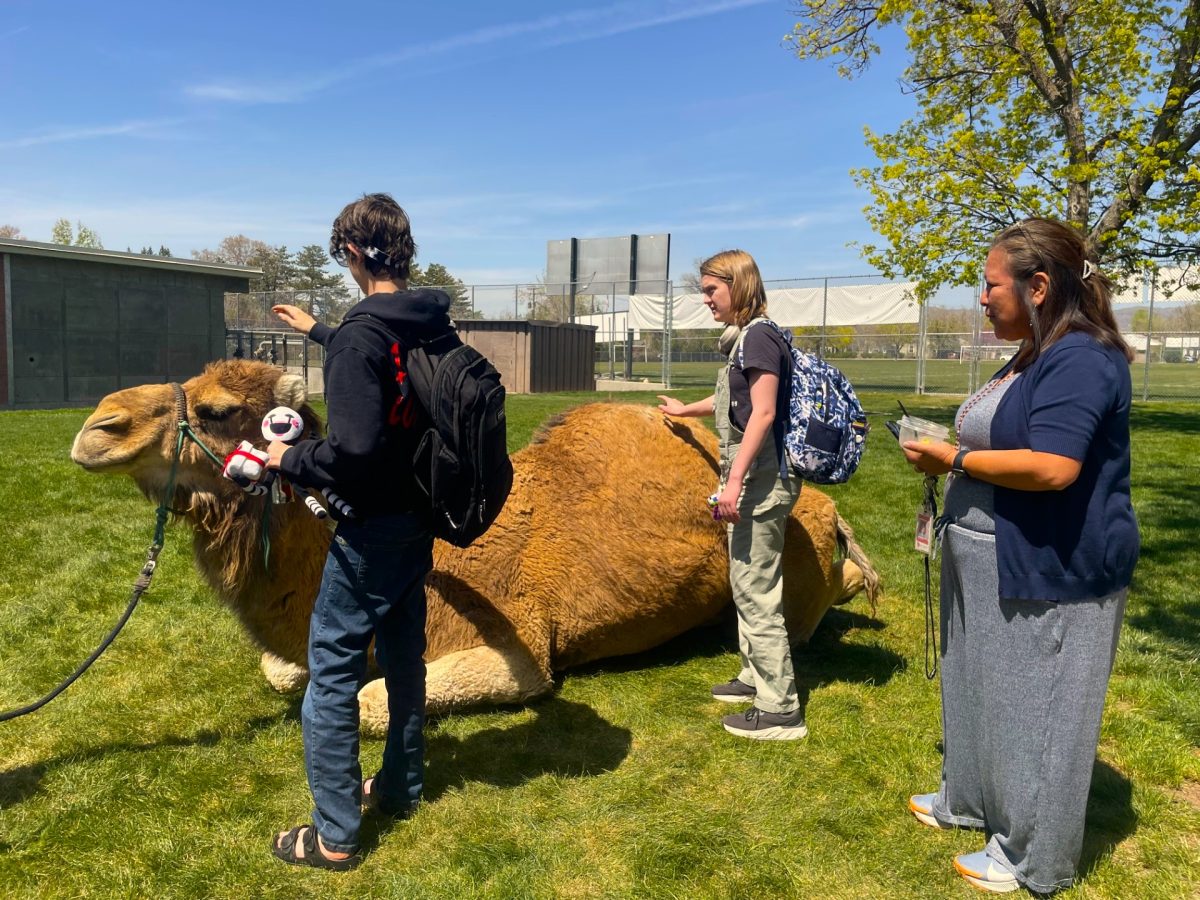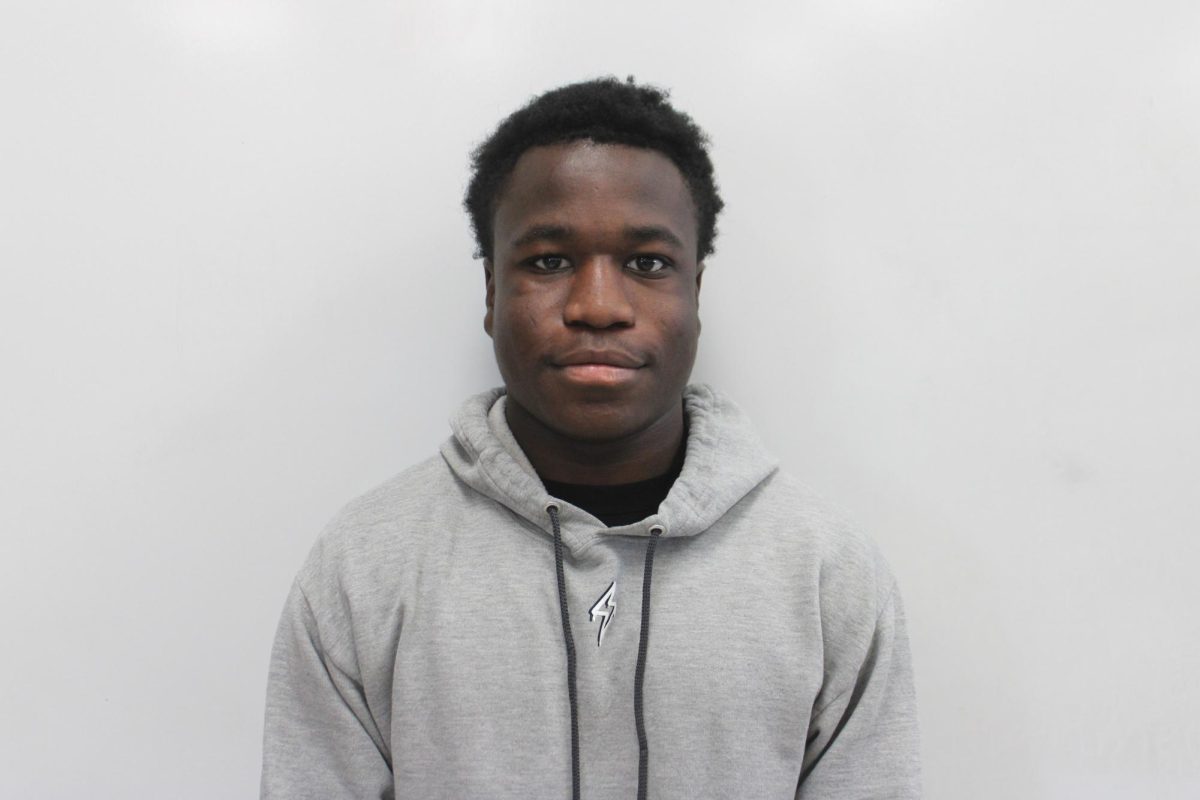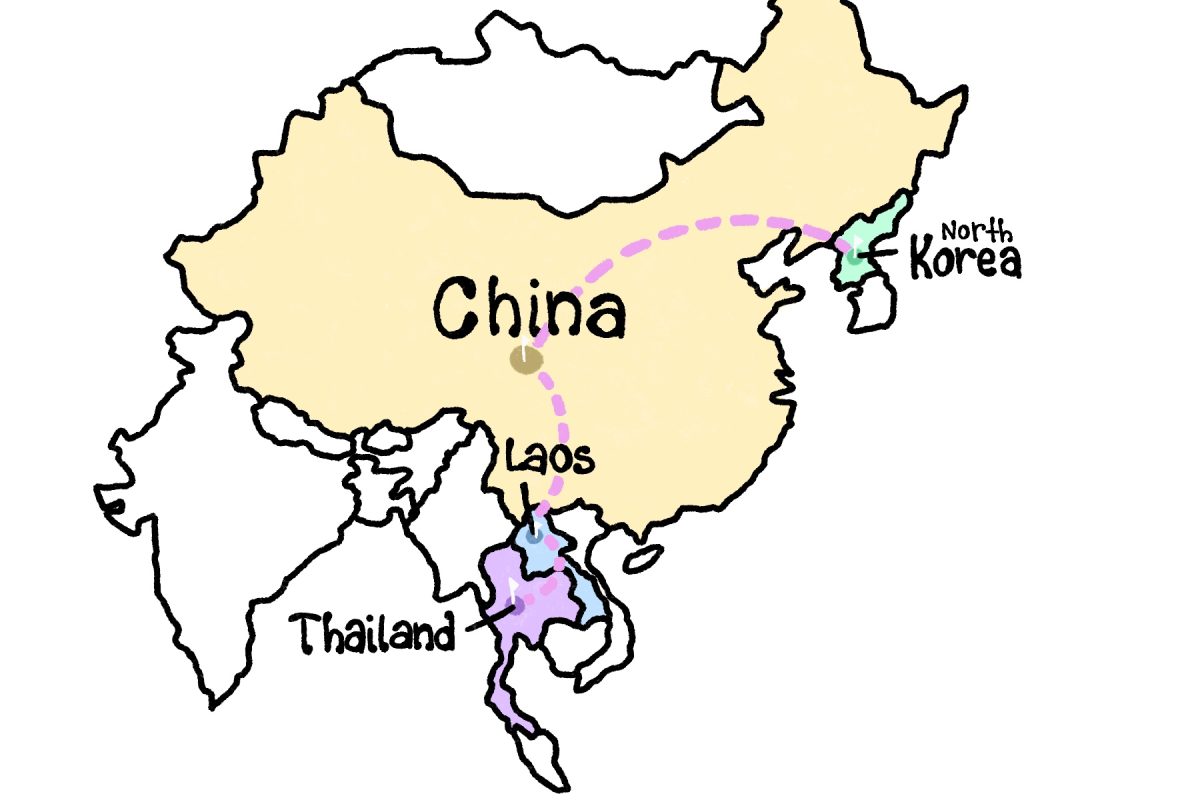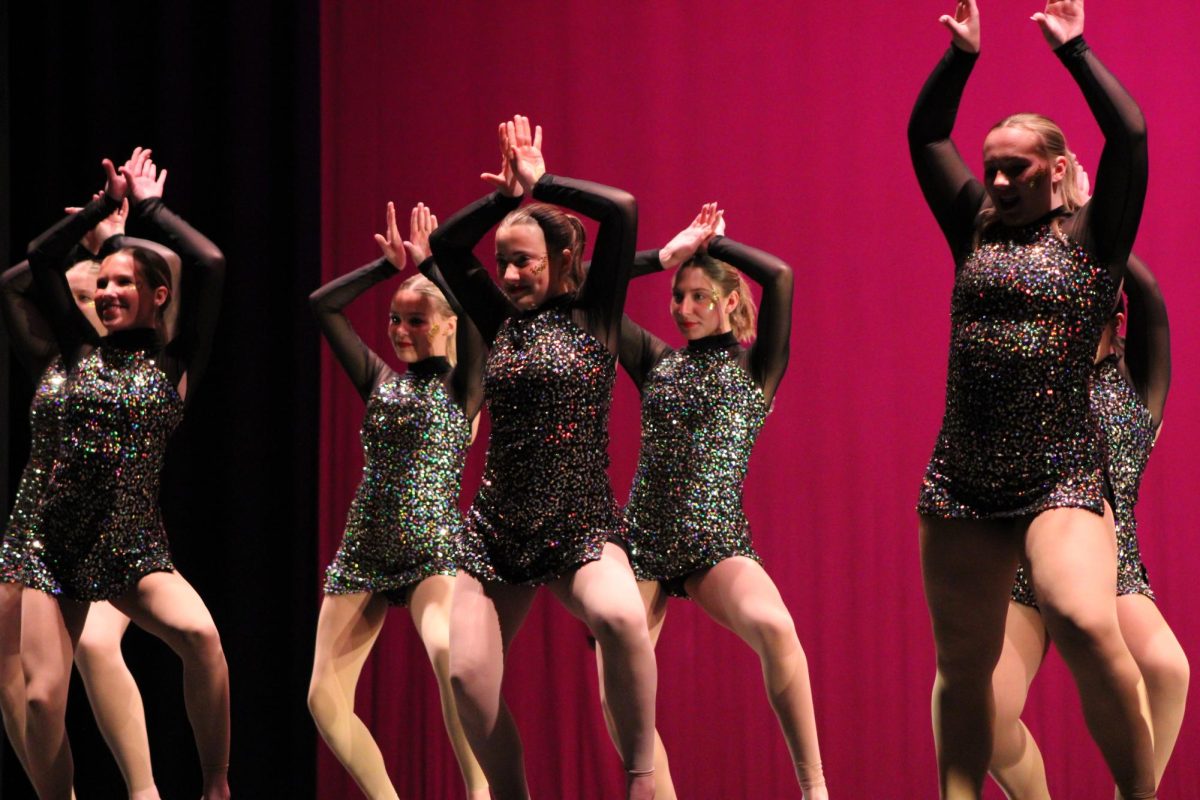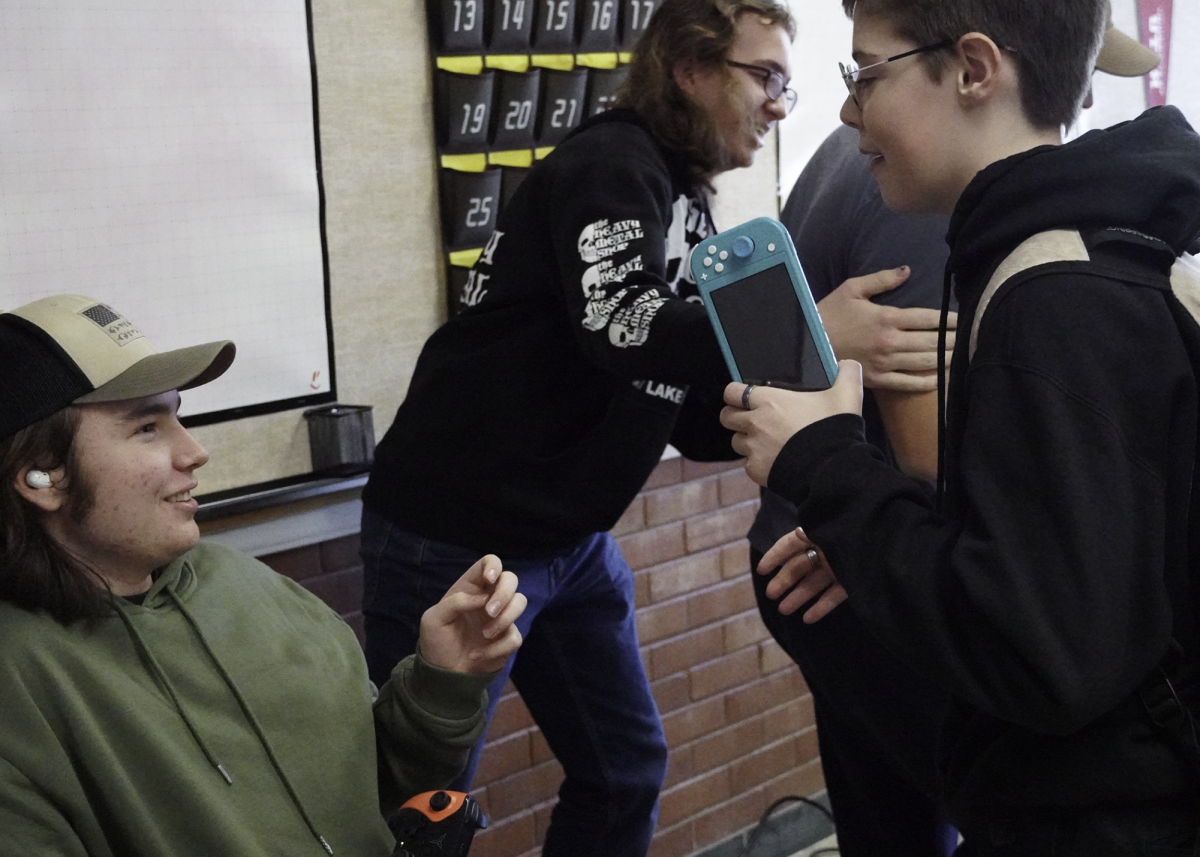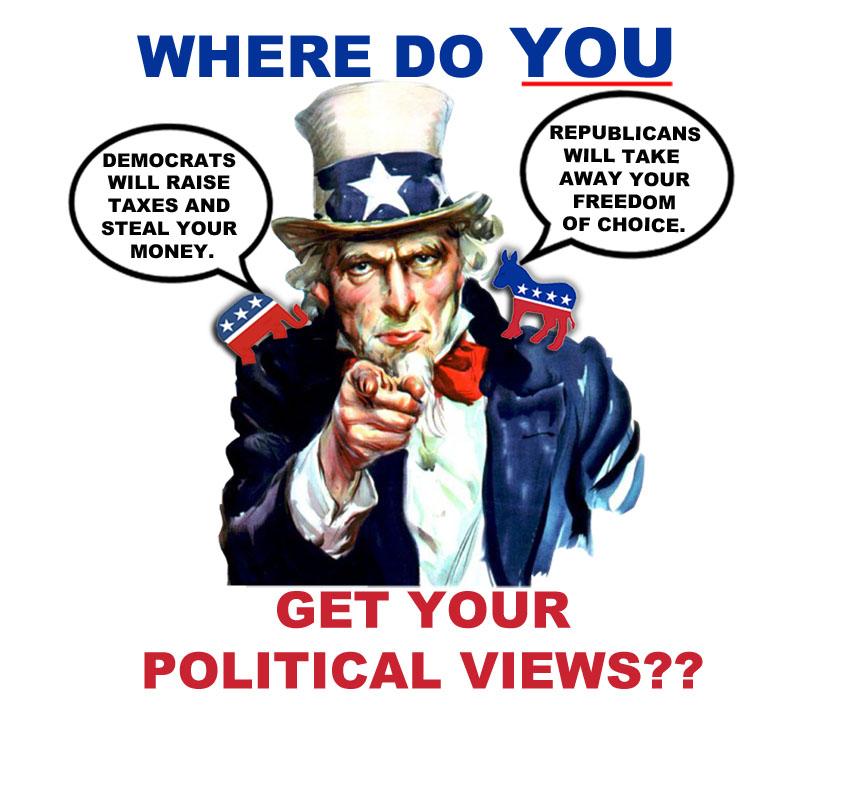Most Teens Can’t Vote, But Determining Political Views Is Still Crucial
December 17, 2014
Rivalry runs deep through the veins of America. The constant battle of opposing views is what this country was built on. While this contention has held America together for more than 300 years, it has nearly torn it apart. Republicans and Democrats make up the most common and intense of these rivalries. When people side with one party or the other, it can become quite the opinionated topic.
Political opinions can be formed in a number of ways. Common influences of political views include peers, family, and the media. These views and opinions begin forming in the early years of adolescence. Even though minors do not have the right to vote, many government officials and political organizations encourage young adults to be involved with and understand the political system of our country.
“The political decisions being made still affect teenagers, even if you don’t vote. It’s very important to be involved and understand [politics],” District 6 Salt Lake City Councilman Charlie Luke said.
While many students are involved the way Luke encourages, they are often misinformed and may not completely understand what they are supporting. For teens who know what they’re talking about, there is nothing more aggravating than a misinformed peer who decides to speak out. The most common place for such false promotions are social media. Through Facebook, Twitter, and similar sites, people can make any sort of statement they wish, regardless of validity or accuracy. This is problematic when it comes to a political standpoint, because people can spread ideas and beliefs improperly and out of context. Radical accounts spread views that teenagers are quick to adopt, simply because finding them online appeals to their judgment. Once an idea catches on, it can spread rapidly through a network. This makes social media dangerous. One post can be shared worldwide in a matter of seconds, giving it false legitimacy.
“[Social media] plays a big role, but not necessarily a good role. I think that there are a lot of uneducated opinions… and a lot of people who get ideas in their heads without knowing what they’re talking about,” Highland senior Nikita Valdez said.
Valdez is an active part of her political community. She believes that while social media can be effective in the sharing of ideas, it has its drawbacks.
“Social media is good because you can spread ideas, but very bad because the wrong ideas can be spread,” Valdez said.
Along with social media, friends and family influence teens and their political views. Parents raise their children with morals that will help dictate what their children believe in as they grow up. However, many teenagers with similar political ideals as their parents claim that their views would be the same regardless of where their parents laid their loyalties. Senior Caroline Emmit identifies herself as independent from either of the two major political parties. However, her parents are very liberal democrats.
“Our opinions align on all the super controversial, heated topics of this moment, but also not always. There are sometimes that they are just too extreme,” Emmit said.
Emmit is an example of someone who has her own opinions. Opinions based on morals she was raised with, but not solely on the views of her parents.
Friends, peers, and people who surround someone every day have a large impact not only on the forming of their opinion, but on how easy it is for them to be open about their beliefs. Teens are most impressionable by other teens. When in large groups, ideas can catch on rapidly. People tend to agree with something if they are surrounded by other people also agreeing to it. This is known as “mob mentality”. Teenagers are susceptible to this mentality, and in an effort to fit in, often change their opinions to more closely align with those of the people they spend time with.
“I could have a conversation with someone one day, and then the next day in a big group of people, their opinion could totally flip.” Emmit said.
Similar to social media, such efforts to fit in can create illegitimate opinions.
While the battle between conservative and liberal will always be close, one side has headway with the youth of the country. Different generations have different ideological identities that shape their political opinions. These identities often originate from events that take place in childhood, when people are first becoming aware of the world. This is why Democrats dominate the majority of today’s teenagers.
Many events in the last two decades have created liberal values in youth. One of the most influential is the time George W. Bush spent in office, and the reputation he gained. Young adults and teenagers have grown up hearing endless ridicule of the George W. Bush administration, which embodied many of the values the Republican Party is espoused with. Therefore it is a common trend for young adults to have contrary views, and side with the Democrats.
However, this trend often reverses as youth mature into adulthood. While the majority of America’s youth is liberal, the majority of America’s seniors are conservative. There are many theories as to why this trend exists. It comes down to the fact that people’s life experiences shape their views. Most colleges support and spread liberal ideas, making impressions on young adults. However, as people mature, their new experiences shape their ideals, often leading to youth liberalists becoming more conservative.
Another reason youth lean to the left wing of politics is because they tend to pay more attention to social issues. Adolescents and people in their early adulthood often care more about human rights, than economics because it’s what effects their daily lives.
Junior Harrison Lind is a self-proclaimed liberal at Highland whose main political concerns lie with social issues.
“Immigration and gay rights are very important and need to be paid attention to.” Lind said.
This is characteristic of today’s youth. The fight for gay rights has been one of the biggest political concerns of the past decade. The majority of activists found at rallies and conventions supporting LGBT rights are young adults and adolescents. However, as youth assimilate into adulthood, money and the economy begin to have a much greater impact. This often adds more appeal to conservative values that were previously disregarded.
Many things factor into the development of political views, and contrary to the common belief of teenagers, people can have political opinions without defining themselves as simply a Republican or a Democrat. Regardless of which side of the fence they fall, every teenager will one day be voting. This is why politicians such as Councilman Luke have such strong opinions about teenagers getting involved; They will one day be dictating the choices of our country.


